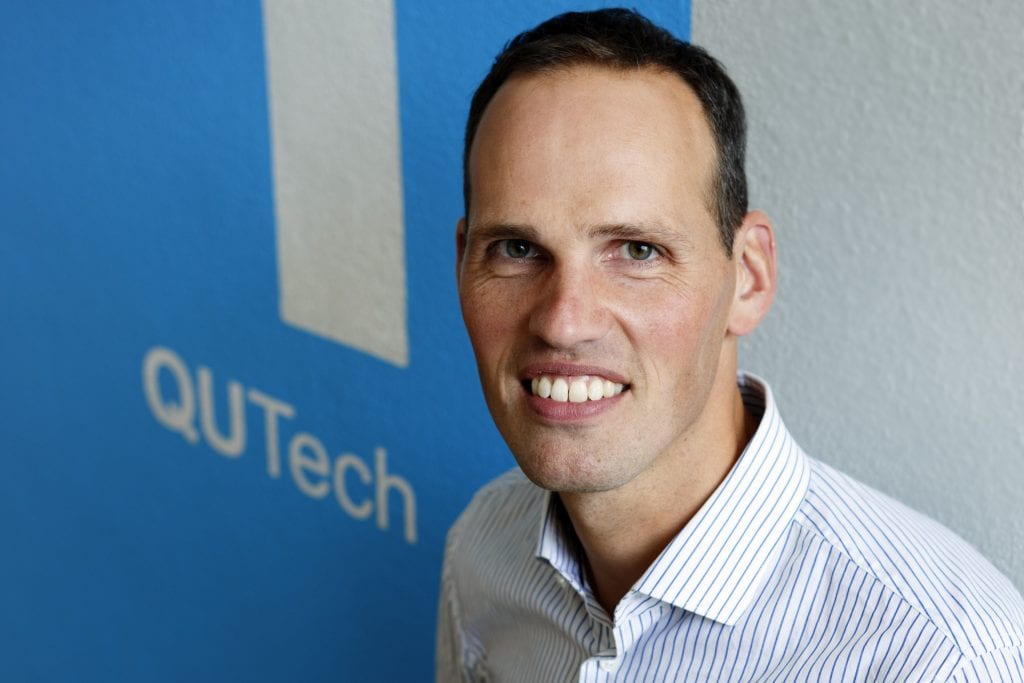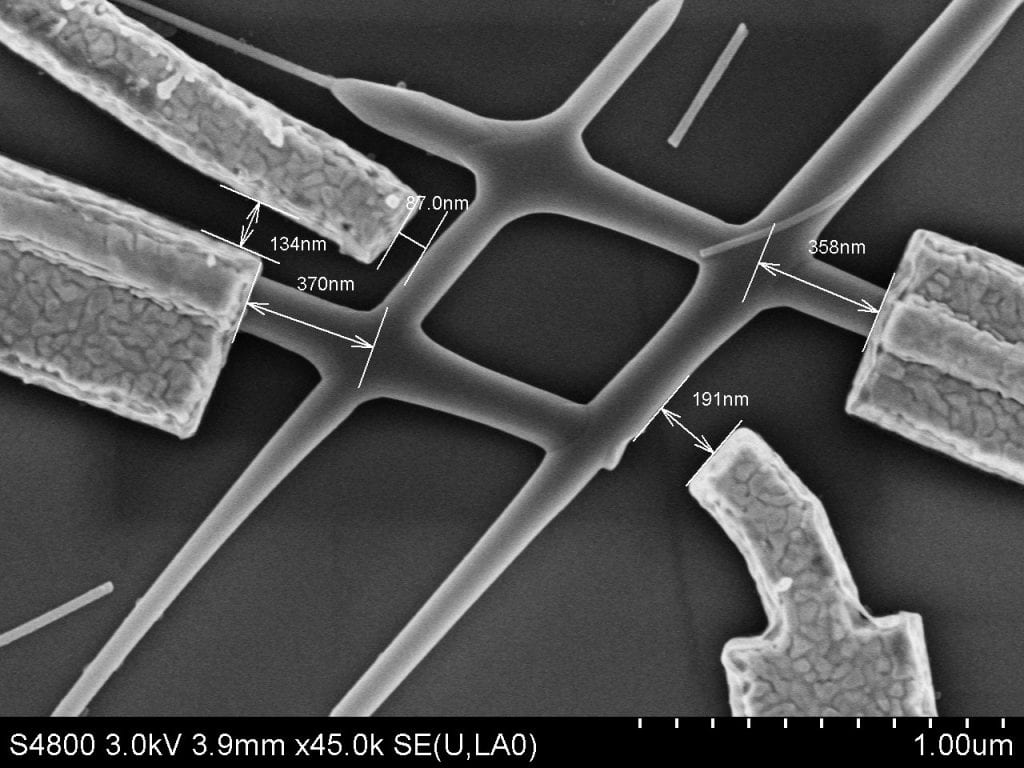31.08.2017Awards
John Stewart Bell Prize for Ronald Hanson

The biennial ‘John Stewart Bell Prize for Research on Fundamental Issues in Quantum Mechanics and Their Applications’ for 2017 has been awarded to Professor Ronald Hanson of TU Delft/QuTech. He will be presented with the prize on 31 August, together with Sae Woo Nam (NIST/VS), and Anton Zeilinger (University of Vienna), for their experiments demonstrating that instantaneous interaction between entangled quantum particles really exists. In 2015 Hanson’s group was the first to demonstrate this entanglement without loopholes (possible alternative explanations for this physical phenomenon). Shortly after this, independent experiments in the USA and Vienna confirmed the result.
Quantum entanglement is the phenomenon whereby particles – for example two electrons – share a single ‘existence’. An action applied to one of the particles has an immediate effect on the other, even if the particles are separated by a great distance. This phenomenon is taken directly from quantum theory, but is so counterintuitive that scientists such as Einstein refused to accept it. He referred to it in a sentence that has become famous in the world of science: ‘spooky action at a distance’. The prize is named after John Stewart Bell, who in 1964 came up with a famous test for proving the existence of quantum entanglement. It was the French scientist Alain Aspect who first succeeded in carrying out the Bell test, in 1982, but at the time two important loopholes remained that allowed alternative explanations for the measurement result. In 2015 Hanson’s group succeeded for the first time in closing both loopholes simultaneously, in an experiment using diamonds on both sides of the TU Delft campus, 1.3 km apart. Soon after, the experiments in NIST (USA) and Vienna confirmed this result, using different techniques.
